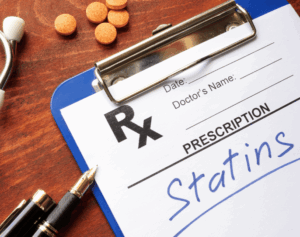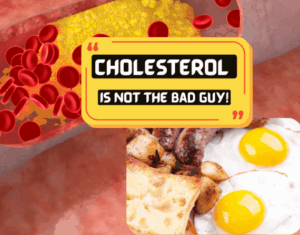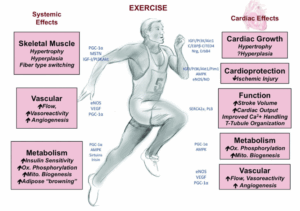Over the last few decades, LDL cholesterol has been cast as the villain of heart health. We’ve been told that high LDL levels clog arteries, leading to heart disease and early death. But what if the story isn’t so black and white? Emerging and even older but overlooked research challenges this one-sided narrative, revealing that LDL cholesterol is not only necessary for many bodily functions but also not the sole culprit in cardiovascular disease that it’s so often made out to be.
Cholesterol: More Than Just a Number
Cholesterol is a waxy, fat-like substance found in every cell of your body. It plays a key role in producing hormones, vitamin D, and substances that aid digestion. Without it, our bodies simply wouldn’t function.
There are two primary types of lipoproteins that carry cholesterol through the bloodstream:
- Low-Density Lipoprotein (LDL): Often labeled “bad” cholesterol because it transports cholesterol to your arteries.
- High-Density Lipoprotein (HDL): Known as “good” cholesterol because it helps remove cholesterol from the arteries.
However, labeling LDL as inherently bad is an oversimplification. In fact, LDL cholesterol serves vital roles in immune function, hormone production, and cell repair.
Why LDL Has Been Demonized
The demonization of LDL cholesterol dates back to the mid-20th century when the diet-heart hypothesis emerged. This theory suggested a direct link between saturated fat intake, high cholesterol, and heart disease. While subsequent studies did show associations between LDL cholesterol and cardiovascular issues, correlation does not equal causation, and causation has still not really been found.
Modern research has illuminated the fact that not all LDL particles are created equal. Large, fluffy LDL particles are far less harmful than small, dense LDL particles, which are more likely to oxidize and damage arterial walls. Simply knowing your total LDL count isn’t enough to determine your risk.
What’s more, many studies fail to take into account the full context of a person’s health. An individual with high LDL and no signs of insulin resistance, chronic inflammation, or poor lifestyle habits may be at a significantly lower risk than someone with low LDL but high inflammation and poor metabolic health, but that’s not something most doctors will tell you.
The Bigger Picture: Inflammation and Insulin Resistance
One of the most critical pieces of the puzzle that conventional cholesterol advice misses is inflammation. Chronic inflammation damages blood vessels, prompting the body to deploy cholesterol to repair the damage. In this context, LDL is more of a responder than an instigator, suggesting that just because LDL is found at the “scene of the crime” does not necessarily mean it committed the crime.
Moreover, insulin resistance, driven by poor diet, sedentary lifestyle, and excess body fat, contributes significantly to the formation of small, dense LDL particles. Elevated triglycerides, low HDL, and increased blood sugar are often stronger indicators of heart disease risk than LDL cholesterol alone.
Some researchers now argue that LDL cholesterol becomes problematic only in the presence of inflammation and oxidative stress. Without these factors, LDL is unlikely to accumulate in artery walls or initiate plaque formation.
The Role of LDL in Hormone Production and Immune Support
LDL cholesterol is an essential building block for hormone production, including testosterone. For men, maintaining adequate testosterone levels supports muscle mass, bone density, libido, and overall vitality.
Additionally, LDL plays a key role in immune response by binding to pathogens and neutralizing bacterial toxins. Some studies suggest that low LDL levels may even impair immune function, potentially increasing susceptibility to infections.
LDL also contributes to cell membrane integrity and facilitates the transport of fat-soluble vitamins like A, D, E, and K. These vitamins are crucial for everything from vision and bone health to antioxidant protection and blood clotting.
The Flawed Focus on Statins
 A major consequence of the oversimplified “LDL is bad” narrative is the over-prescription of statins, drugs designed to lower cholesterol. While statins can be beneficial for some individuals, particularly those with a history of heart disease, they are not without risks. Side effects can include muscle pain, fatigue, and cognitive issues.
A major consequence of the oversimplified “LDL is bad” narrative is the over-prescription of statins, drugs designed to lower cholesterol. While statins can be beneficial for some individuals, particularly those with a history of heart disease, they are not without risks. Side effects can include muscle pain, fatigue, and cognitive issues.
Even more concerning is the fact that many doctors prescribe statins based on cholesterol numbers alone, without assessing metabolic health, inflammation levels, or lifestyle factors. This blanket approach ignores the underlying causes of heart disease and can lead to unnecessary treatment.
Also, artificially lowering LDL cholesterol doesn’t address the underlying drivers of cardiovascular disease, like inflammation and insulin resistance. And for men, statins may lower testosterone levels, undermining energy, strength, and mental clarity.
Rethinking Your Cholesterol Numbers
Instead of fixating solely on lowering LDL cholesterol, consider these more comprehensive markers of cardiovascular health:
- Triglyceride-to-HDL Ratio: A lower ratio (ideally below 2:1) is a better indicator of heart disease risk than LDL alone.
- C-Reactive Protein (CRP): Elevated CRP indicates systemic inflammation and predicts future cardiovascular events.
- Lipoprotein(a): High levels of this genetic marker can increase cardiovascular risk independent of LDL.
- Insulin Sensitivity: Maintaining stable blood sugar levels reduces inflammation and protects blood vessels.
- Waist Circumference and Visceral Fat: Abdominal obesity is strongly linked to heart disease, regardless of cholesterol levels.
Lifestyle Changes for Optimal Cholesterol Balance
Improving heart health isn’t about eradicating LDL cholesterol from your body; it’s about creating balance and reducing underlying inflammation. Here’s how:
- Eat a Nutrient-Dense Diet: Focus on whole foods rich in healthy fats (like avocado, olive oil, and fatty fish), fiber, and antioxidants. Avoid ultra-processed foods and excessive sugar, which fuel inflammation.

- Manage Stress: Chronic stress increases cortisol, which can worsen cholesterol profiles and promote inflammation. Practices like breathwork, mindfulness, and time in nature can help.
- Exercise Regularly: Both resistance training and cardiovascular exercise improve HDL levels, reduce triglycerides, and enhance insulin sensitivity. Aim for at least 150 minutes of moderate activity weekly.
- Prioritize Sleep: Poor sleep elevates stress hormones and inflammation. Strive for 7–9 hours of high-quality sleep each night.
- Reduce Exposure to Toxins: Environmental pollutants, smoking, and alcohol all contribute to oxidative stress and vascular damage.
Supplements That Support Heart Health
Certain supplements may also help maintain healthy cholesterol levels and reduce inflammation:
- Omega-3 Fatty Acids: Found in fatty fish and fish oil supplements, omega-3s reduce triglycerides, blood pressure, and inflammation.
- Coenzyme Q10 (CoQ10): Supports heart health, especially in those taking statins, which deplete CoQ10.
- Niacin (Vitamin B3): Can raise HDL cholesterol while lowering LDL and triglycerides, although dosing must be carefully monitored.
- Berberine: A natural compound that improves lipid profiles and enhances insulin sensitivity.
- Magnesium: Plays a key role in over 300 enzymatic reactions and supports vascular health.
Conclusion: LDL Isn’t the Enemy
It’s time to shift the narrative. LDL cholesterol is not a villain – it’s a vital part of your body’s health mechanisms. Demonizing LDL without context ignores the complexity of human biology and does men a disservice by promoting fear instead of informed action.
narrative. LDL cholesterol is not a villain – it’s a vital part of your body’s health mechanisms. Demonizing LDL without context ignores the complexity of human biology and does men a disservice by promoting fear instead of informed action.
By focusing on reducing inflammation, improving insulin sensitivity, managing stress, and supporting overall metabolic health, you can protect your heart without unnecessarily fearing cholesterol. The goal isn’t low cholesterol at any cost – it’s balanced health that supports energy, resilience, and long-term vitality.
Next time you get your cholesterol levels checked, look beyond the LDL number. A more nuanced view will serve you better in the long run. And remember, health isn’t just about hitting a target on a lab report – it’s about creating a lifestyle where your body can thrive.









